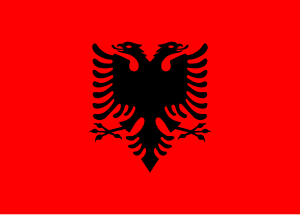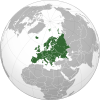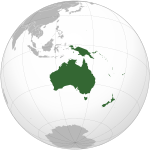Përdoruesi:Tëfcí/Kantieri3
| Kantieri 3 |
| Themeluar | 1950 | ||
|---|---|---|---|
| Stadiumi | Qemal Stafa | ||
| Kapaciteti | 20 000 | ||
| Pronari | Besnik Sulaj | ||
| Trajneri | Ilir Daja | ||
| Liga | Kategoria Superiore | ||
| 2010/11 | 10 | ||
| |||
 Lexojeni ju lutem kur kuptoni gjermanisht, e morra nga një forum gjerman dhe është shumë i saktë dhe informativ. Teksti tregon për Leka i Madh që ishte Shqiptar.
antwort von unitedalbania unitedalbania 03.06.2010 - 5:06 Abgestimmt für: Albaner alexander lebte knapp 350 vor christus. zu der zeit lebten keine slawischen bürger auf dem balkan, da diese erst 600 nach chr. auf dem balkan siedelten. also fällt makedonier schonmal raus. die griechen, wie wir sie heute kennen haben mit den griechen damals überhaupt nichts zu tun. anderes glauben, andere kultur, andere menschen und andere sprache. also fällt grieche ebenso raus. die einzige möglichkeit ist, dass er albaner war. die albanische sprache ist heute noch fast genauso wie sie vor jahrtausenden auf dem selben gebiet war, da dieses gebiet durch die geographische lage abgeschottet vom rest des balkans war. alexanders mutter war nachweislich aus dem epirus (cameria), einem bis in die 1940er jahre albanischsprachigem gebiet. die albaner wurden aus diesem gebiet, das auch zu skenderbegs reich gehörte nach dem weiten weltkrieg durch die griechischen faschisten vertrieben und ermordet. da seine mutter nachweislich albanerin ist, und alexander mit deinen soldaten den ghegischen dialekt sprach, muss er albaner gewesen sein. er trug auch zwei hörner auf dem kopf (sowie skenderbeg --> größter albanischer nationalheld). das er führer der makedonen war mag ich nicht bestreiten, aber makedonier waren damals genauso wie die dardaner, albaner oder dalmaten, alles illyrer. die illyrer sind die vorfahren der albaner. bitte googeln! also bitte falls nicht auf die griechisch-serbische propaganda rein. die griechen und serben haben heute viel politische macht in der welt, deswegen können sie die geschichte meistens drehen und wenden wie sie wollen, aber im albanischen gibt es volkslieder aus abgeschotteten bergregionen, die viele jahrhunderte und vllt sogar jahrtausende alt sind, in denen über einen helden alexander gesungen wird. wir albaner wissen, dass er albaner war, und fallen nicht auf die griechisch-serbische propaganda rein. ich bitte euch eure augen zu öffnen und nach neutralen quellen zu suchen. viele englische und eutsche historiker und faktensammler teilen meine meinung. die albanische währung heute ist "lek". erinnert an "aLEKsander". überlegt mal wieso alexander sogut wie alles eroberte, aber niemals gegen die dardaner,albaner(damals ein stamm), oder dalmatier kämpfte!!!!!!! er war selbst ein illyrer genauso wie diese stämme selbst! KEIN GRIECHE DIESER WELT SOLL VERSUCHEN SICH FREMDE HELDEN ANZUEIGNEN2 ICH HABE MANCHE GRIECHEN SCHON BEHAUPTEN HÖREN SKENDERBEG SEI EIN GRIECHE. SOEIN QUATSCH UND SOEINE PROVOZIERENDE AUSSAGE SOLLTE MIT DEM GEFÄGNIS BESTRAFT WERDEN. UNMÖGLICH SOWAS. DA PLATZ MAN DOCH VOR WUT. UND DAS GLEICHE GILT AUCH FÜR DIE GESCHICHTE DES ALEXANDER![1]
The Albanians (p. 10), who occupy the western central highlands in the direction of the Adriatic, number perhaps a million and a quarter, and are supposed to be the descendants of the ancient Illyrians, a people of Graeco-Latin origin. By the Turks they are known as Arnauts, though they call themselves Skipetars, and are furthermore divided into various bands distinguished by different names. Owing to the almost inaccessible character of the country, the wildness of the mountain valleys and gorges, and the want of roads, Albania is little known, and the people, though brave to excess, are rude, unlettered, and addicted to brigandage. Most of the great landowners are ^lohammedans, though the majority of the peasantry are Christians. The country life is still to a great extent feudal, but far from possessing the best features of feudalism. The peasantry are crushed, not by one Pasha or Bey, but by a legion of petty tyrants, who, almost without check, go to any excess in their eagerness to extract as much as possible out of them. " Skiperi," or the land of rocks, very completely expresses the characteristics of the country. Upper Albania is less known than Lower Albania, which is also not so wild and rugged in appearance. But in no part of the country is agriculture otherwise than at a low ebb. The valleys are fertile, but only half cultivated or pastured by scanty droves of horses, sheep, and oxen. Grain is nevertheless extensively grown in some sections of the country, and a coarse kind of silk is in Dibra manufactured into tissues used for the " elaborate embroidery of the picturesque national costume." The capas, or stout cloaks, are made out of cloth woven from Albanian wool, and, in addition, red leather and other minor articles are fabricateil among the mountains of Illyrian Albania. In Lower Albania, or Epirus, the country is better cultivated, owing to the milder climate. Cotton, olives, tobacco, oranges, citrons, grapes, and cochineal are among its exports. The mines, which abound in the mountains, might, if worked, yield great wealth ; but the ignorance of the people and the dilliiulties of trausp^rt have hitherto interfered with the development of this source of Turkish wealth. Li some of the loveliest of the valleys hot sjjrings possessing great medicinal qualities are found, but the "Consul's wife" tells us that the country people are quite ignorant of the uses to which they might bo applied, and take the waters indiscriminately for any ailment tlii-y might happen to have, and in obedience to the old suj)crstitious reverence of the spirits of the fountains, even drink from different sources, in the hojie of gaining favour with their respective nymphs.
| ||||||||||||||||||||||||||||||||||









